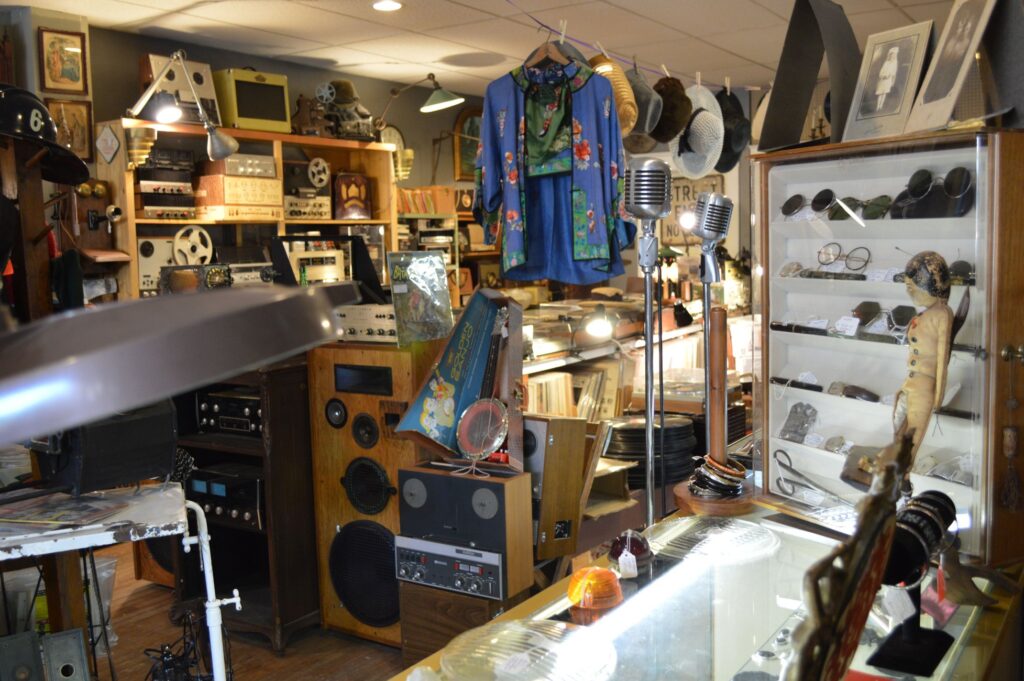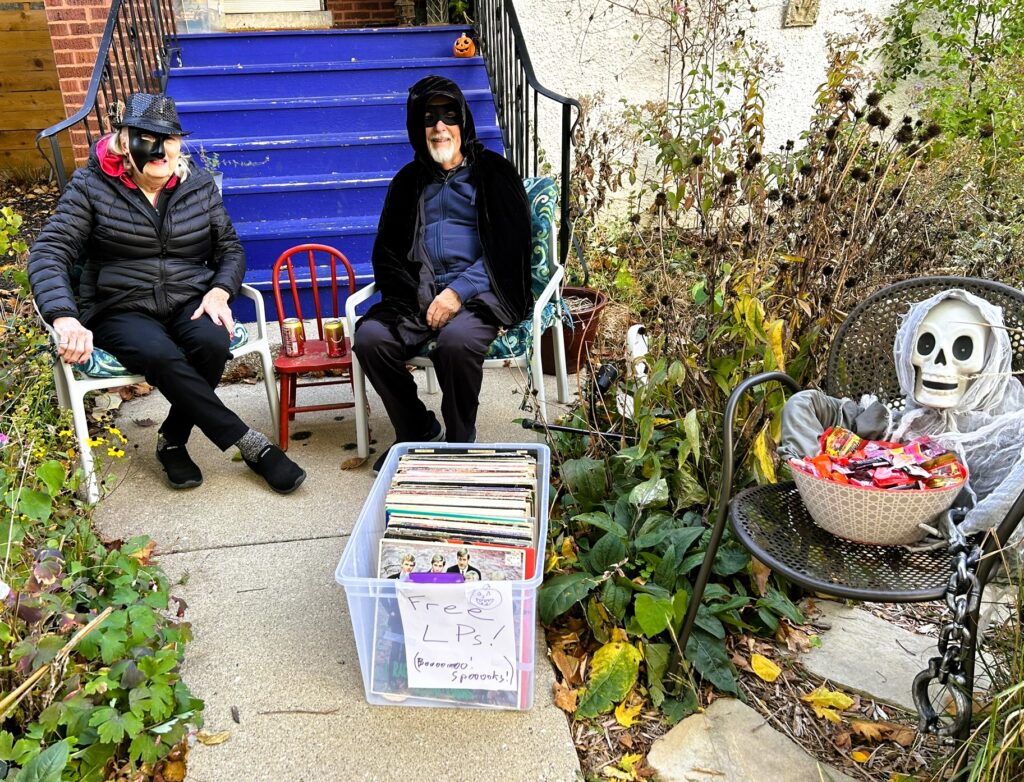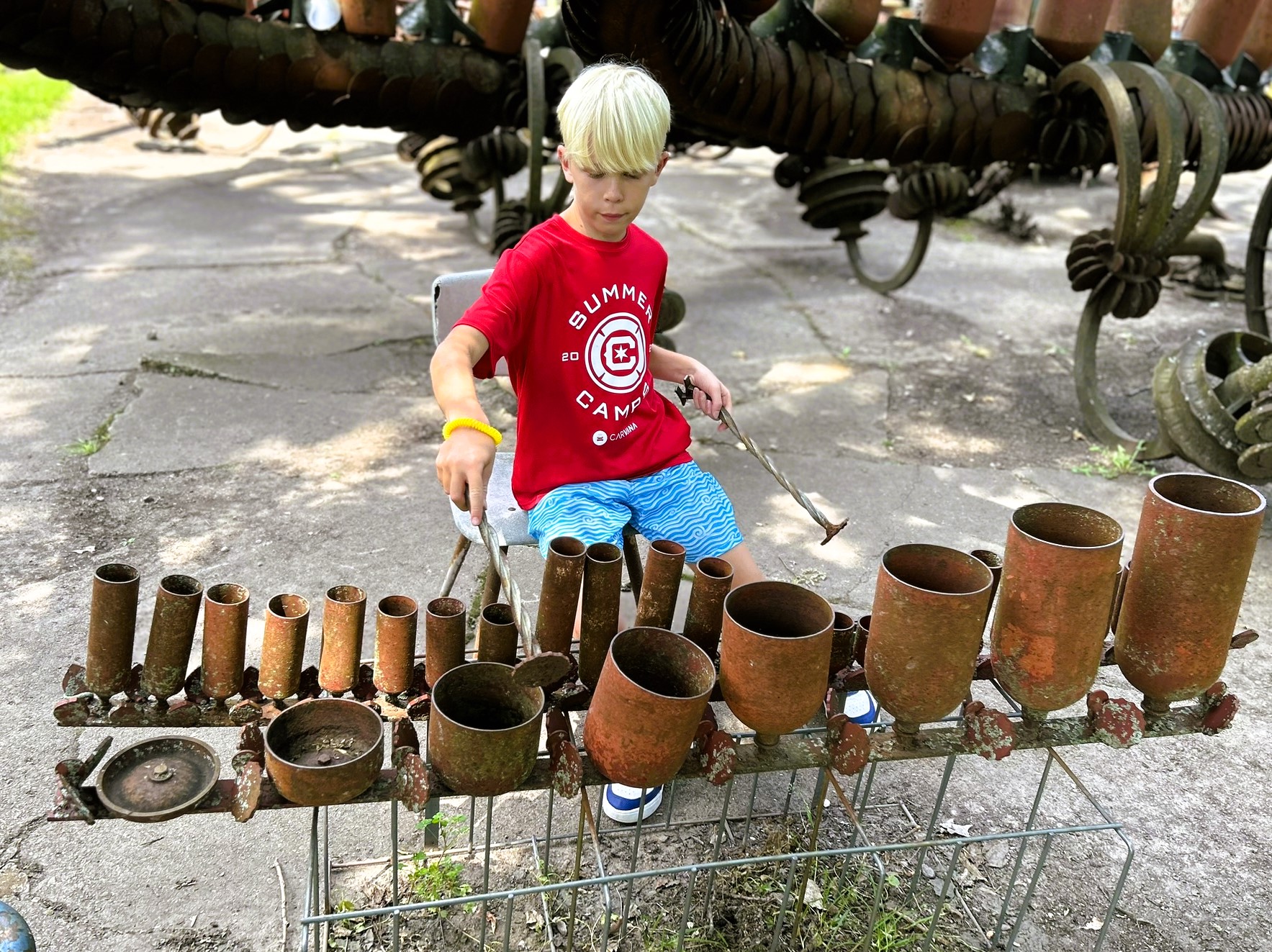Insanity manifests culturally. In Descartes’ day, people believed they were made of glass. Those people were objectively nuts to anyone but themselves. Similarly, I really got into vinyl after I got Covid for the first time in Sept. ’24.
The friendly fellow who owns the Ifinder Antique store in Mineral Point, WI had a mysterious, cat-like shine in his eyes. I mentioned, jokingly, that my Covid symptom was vinyl addiction. He replied, grinning, “You are not the first to tell me that.” When I searched for the store again the next day, it was gone. (JK, but I picked up an LP of blues legends called “Old Friends”)

Vinyl Categorization as Mental Therapy
Along with my first Covid infection (I know, late to the party) I suffered a few weeks of extreme mental fog. I couldn’t think straight but I could enter my record collection into Discogs. My collection of LPs had been albatrossing me for decades. It consisted of cheap LPs I bought as a teen in the 80s, a crate or so from an Iowa garage sale in the 90s, and what remained of my parents’, brother’s, and sister’s collections. In other words, the collection was Not Me – it was Old Me who listened to Cat Stevens, my brother who listened to Foghat, my sister who worked out to Jane Fonda, my parents who knew Jesus Christ was a Superstar, and some family from Iowa who was into polka. I cataloged each record, about 450 or so, down to the pressing. Then I got rid of 250.
In fact, I sold back the albums I bought for .99 cents in 1984 to the same record store in 2024 for $1.25 (store credit, naturally).
Others I gave away at Halloween to children who did not know what LPs were but who sensed, somehow, that their grandma or gandpa might appreciate one. (Plus, a neighbor who was excited to do the Jane Fonda Workout. One never knows, do one?)
Other LPs went to a farm upstate. Maybe Woodstock (IL). They are happy there, I’m sure.
I could not speak words good with the Covid brain, but my vinyl was housed in a pristine database.

Vinyl as Anti-Enshittification Hobby
Pre-me-getting-Covid, Kyle Chayka wrote about quitting Spotify in the New Yorker. Of the metastasizing black mass of A.I and algorithm on Spotify he said: “Listeners become alienated from their own tastes; when you never encounter things you don’t like, it’s harder to know what you really do.”
I did not quit Spotify. I thought, then, that I could still search out what I wanted on Spotify. It was just that they had made it less easy to do so and much easier to let the AI “DJ” take over. I thought I could, in other words, make Spotify do what I wanted it to do. For example, play a Stevie Wonder album. Let’s say Fulfillingness’ First Finale.
Philosopher Michel De Certeau wrote about what he called “poeisis” (because there always must be an obscure Greek term). Poeisis is a kind “hidden production” that manipulates the consumer, leaving them no “place in which they can indicate what they make or do with products of this system.” Production begets another kind of production which is consumption – “a way of using products imposed by the dominant economic order.” De Certeau is hopeful. He argues that humans manipulate products to their will and bend them to purposes not intended.
But it may be that human pathways cannot be trod in digitally enshittified meadows.
Shedding the constricting skin of my old vinyl, I re-created myself with new vinyl. I started with Stevie Wonder. Spurred on by the podcast The Wonder of Stevie, I bought the five early 70s albums considered his Classic Period. (Also: Syreeta.) I found the place in my heart where Fullfillgness’ First Finale seemed to have always dwelled. I found it by holding the album, placing it on the platter, playing each side, listening to it. I only state the obvious here because it felt like the path I was making away from Spotify and back to myself. Those very quotidian actions: holding, placing, playing, and listening are actions I had not been doing with Spotify. Listening to Stevie felt like returning home; no longer alienated from my own tastes.
Or, in the more technical terms of De Certeau, I “re-appropriated the product-system” with the goal of “therapeutics for a deteriorating social system”. (That is, I made myself feel more human by taking control of the products of an inhuman system.)

Vinyl Personhood
I am a vinyl person now. (Reader: insert clever callback to Descartes’ glass person here.) For those interested, my skeleton is Audio-Technica AT-LP 120X, Sony STR-DH190, and Triangle BRO3 passive speakers. My flesh is made of 70% Blues, remaining parts soul, funk, bluegrass, country, and The Cure. When I spin a record, the analog signal gets a boost from the amp and travels over copper wire to the speakers. Nowhere is this logged in any corporate cloud. Nothing suggests further listening of similar things. There is one receiver: me.
Analog listening removes the secret listener: the poesis (manifestation) of a system designed to manipulate you. (Obviously, there could be some further, invisible manipulation transforming me into vinyl – but let’s just focus on the first turtle instead of going all the way down.)
We tend to see technological progress as a choice between becoming a Luddite or Acolyte (of technology). As a vinyl person, I see another stance: manipulating the technological system toward human needs. Increasingly that will mean simply not using technology that degrades our humanity.
We can Marie Kondo our lives but instead of asking “Does this spark joy?” ask “Does this make me more human?”


